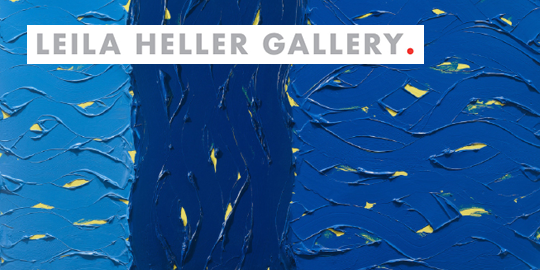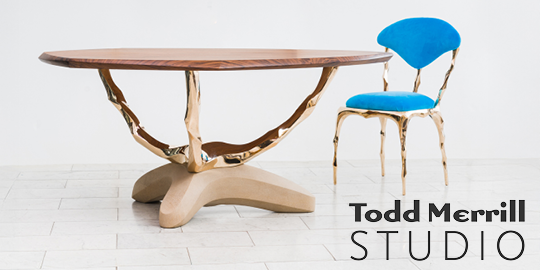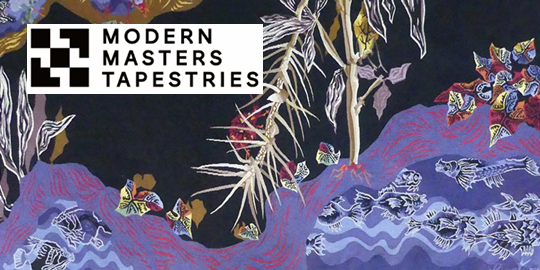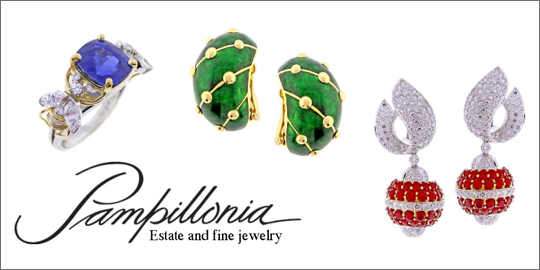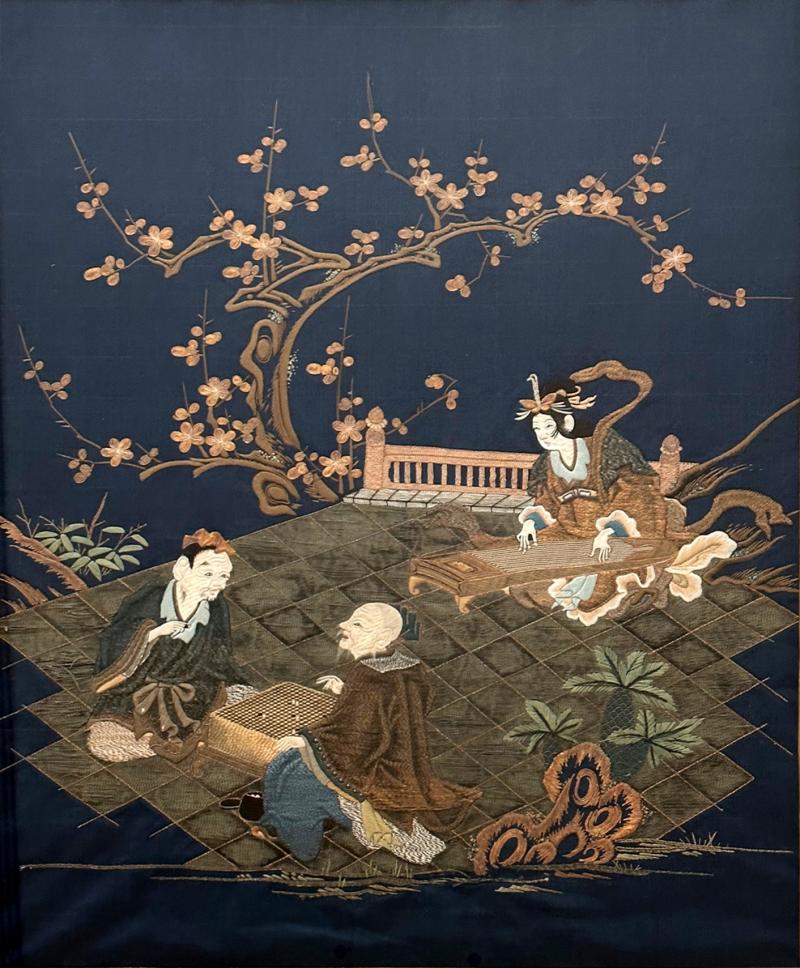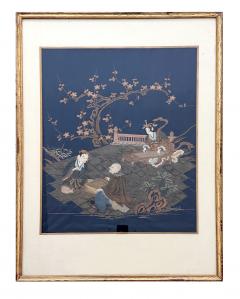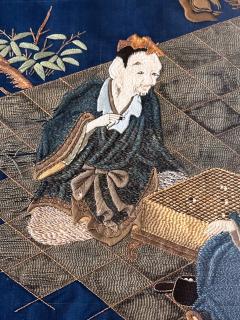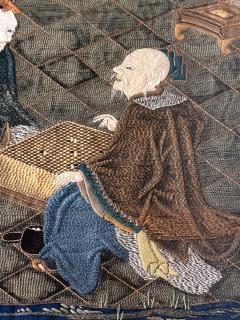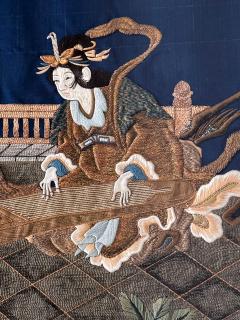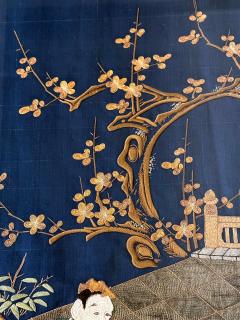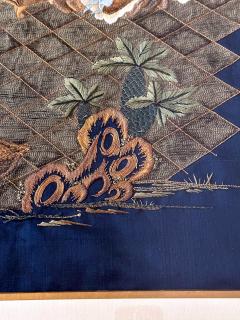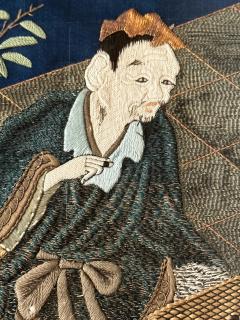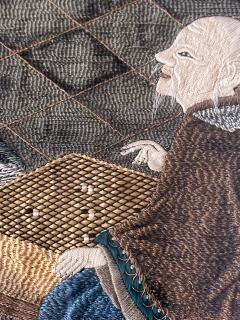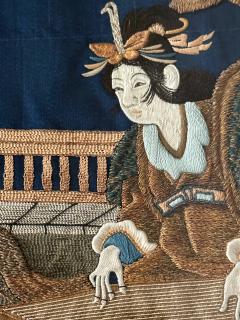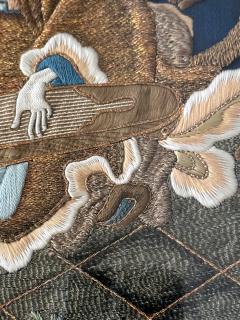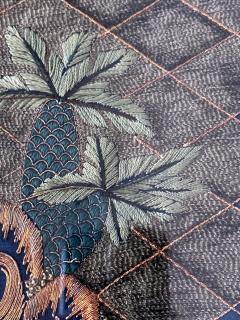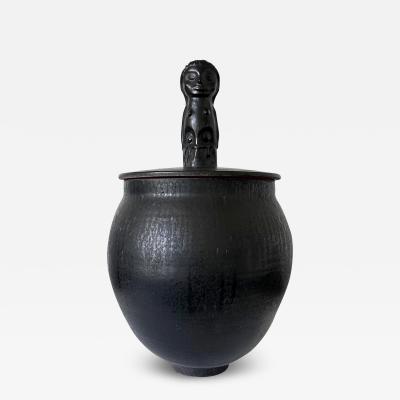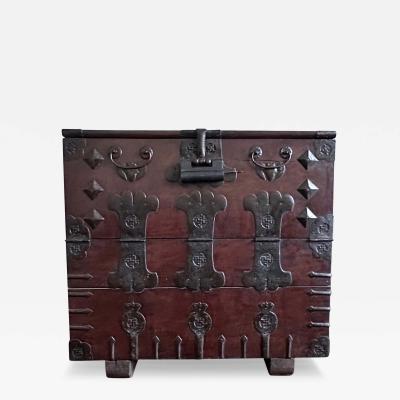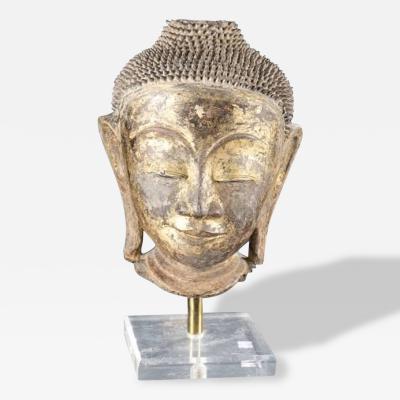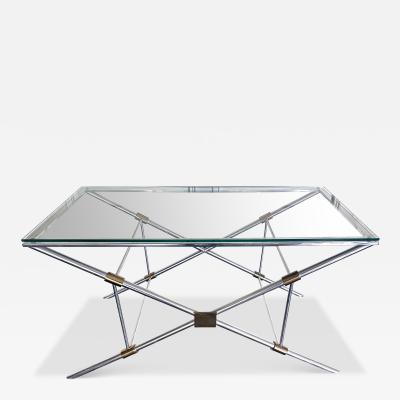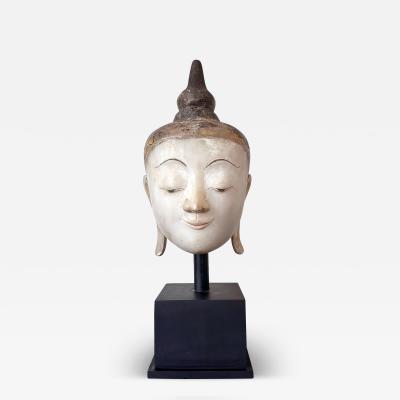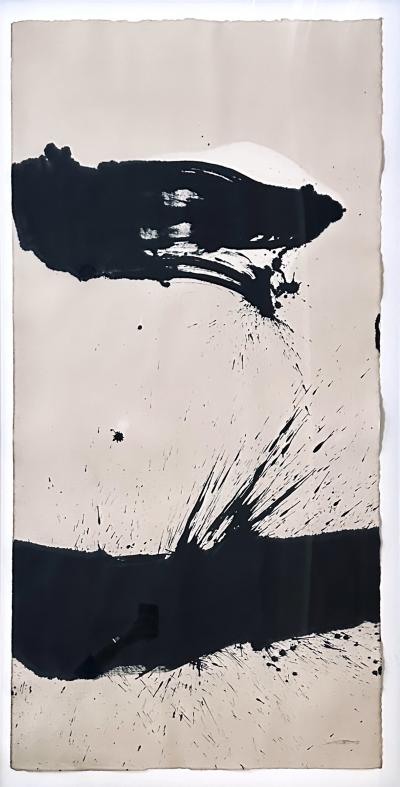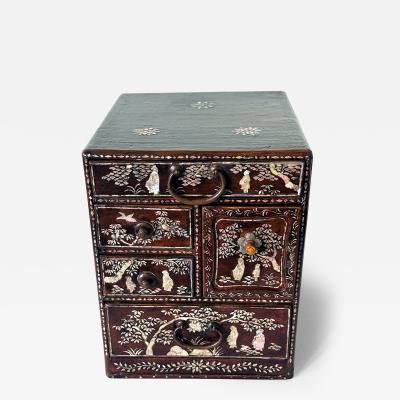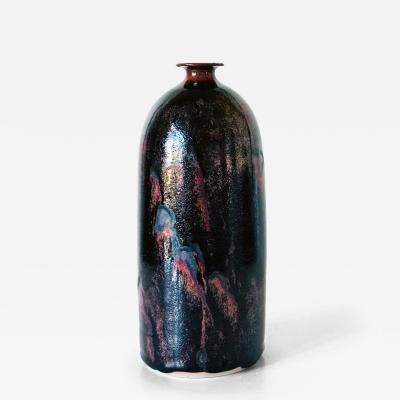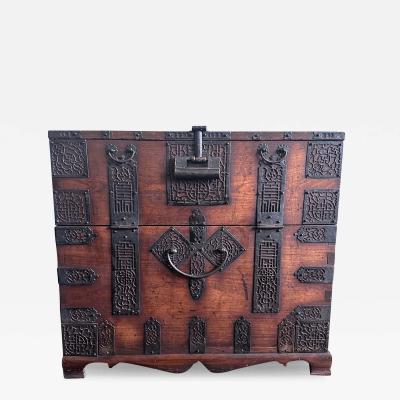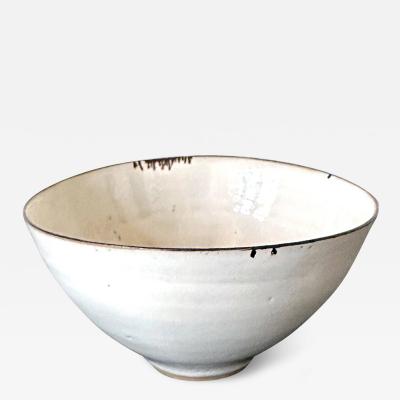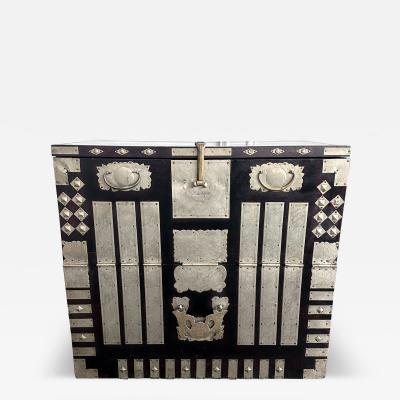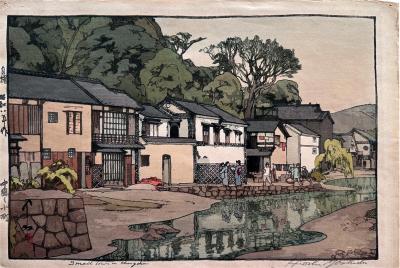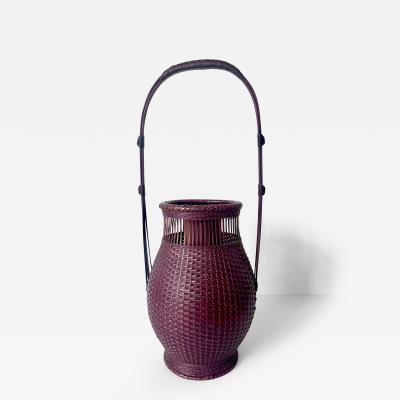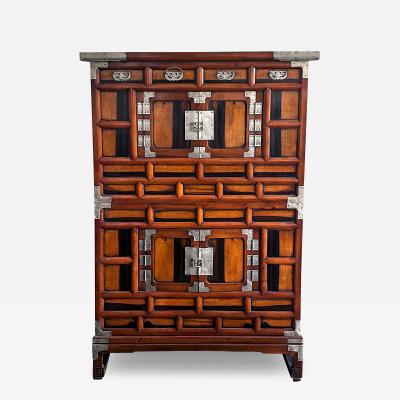Framed Antique Japanese Embroidery Fukusa Textile Panel
-
Description
A Japanese silk Fukusa Panel housed in a gilt frame circa late 19th century of Meiji Period. Fukusa is a traditional Japanese textile art used as a wrap for presenting gifts at important occasions. On the deep blue background, the elaborate embroidery work depicts three deities of the Shichifukujin (Seven Gods of Fortune in Japanese mythology) under a blooming plum tree. First mentioned as a collective in the year 1420, the origin of Shichifukujin is rooted as ancient gods of fortune from various religions in Japan. From Mahayana Buddhism came Benzaiten, Bishamonten and Daikokuten; From Chinese Taoism came Fukurokuju, Hotei and Jurojin; The only one who has a native Japanese ancestry is Ebisu. With time, they all developed into the patron gods of various professions and trades in Japanese society.
The embroidery work on this large Fukusa consists of Fukurokuju and Jurofin playing chess and Benzaiten holding a biwa instrument. Impressive in its intricate details and a wide range of techniques when viewed in detail, the piece showcases a very fine workmanship. The panel itself is 22" x 27.25". -
More Information
Origin: Japan Period: 1900-1919 Materials: silk, textile and wood Condition: Good. Fine condition, minor discoloration on the original mat and gold leaf wood frame. Creation Date: 1890-1910s Styles / Movements: Asian, Traditional Patterns: Asian/Oriental, Handmade Incollect Reference #: 665650 -
Dimensions
W. 28 in; H. 39.25 in; D. 0.5 in; W. 71.12 cm; H. 99.7 cm; D. 1.27 cm;
Message from Seller:
Tishu, based in Atlanta, GA, offers a diverse collection ranging from Neolithic art to 20th-century collectibles, with a focus on Mid-century design, Japanese and Korean art, Asian textiles, and Contemporary Aboriginal art. Driven by a passion for timeless beauty, the gallery is open by appointment only and offers works that span 5,000 years of history. Reach them at 305-400-0561 or tishu@tishugallery.com.


